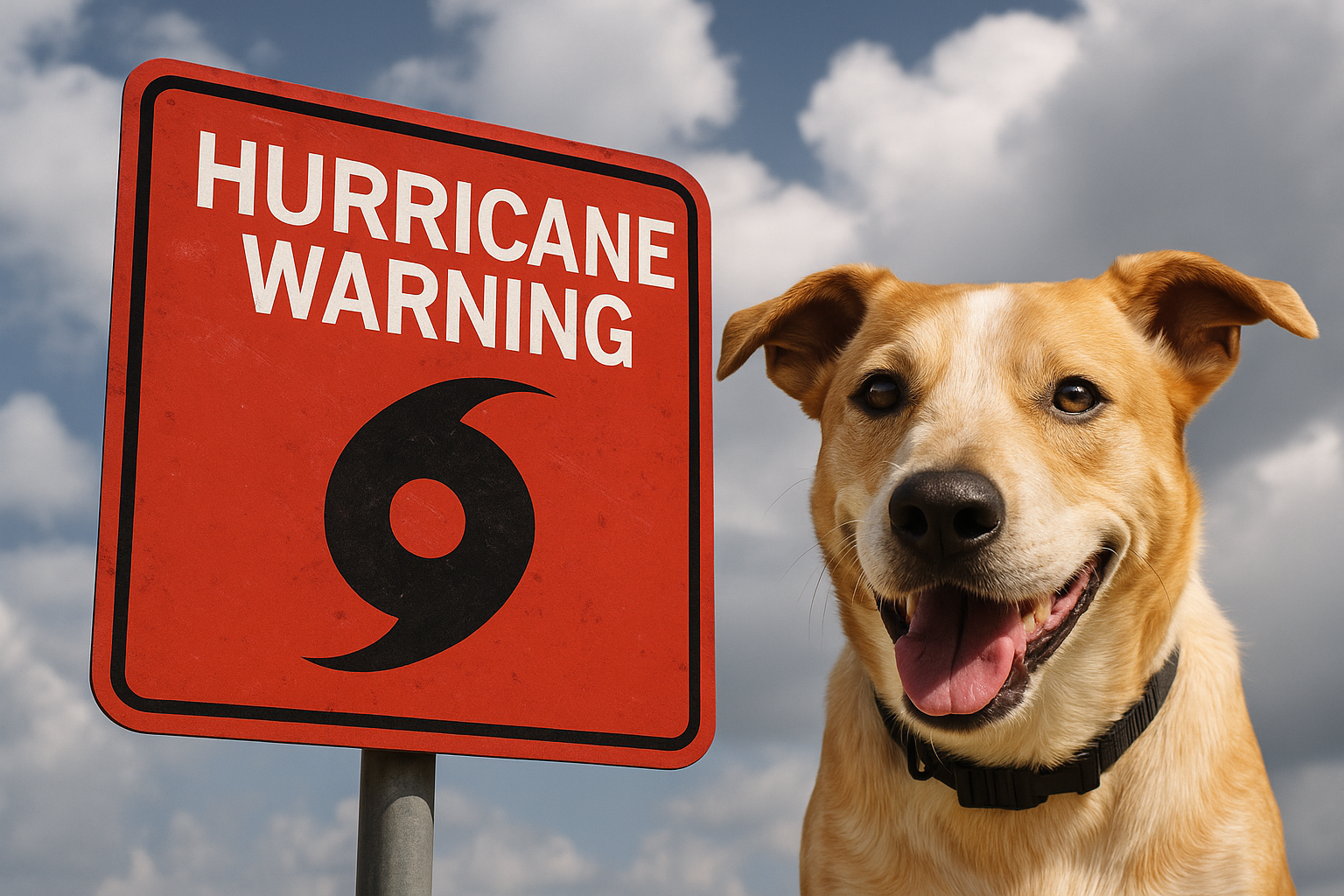
When a hurricane is on the horizon, your priority is keeping your loved ones safe—and that includes your pets. While many families in Florida have a plan for themselves, pets often become an afterthought in emergency preparedness. Following the right hurricane safety tips for pets can be lifesaving. Here’s everything you need to know to protect your furry family during hurricane season.
🚨 Make a Pet Emergency Plan
Just like humans, pets need an evacuation plan. Here are some essentials:
- Identify pet-friendly shelters in advance (check county resources or BringFido).
- Designate an emergency caregiver in case you’re not home.
- Ensure your pet wears a collar with ID tags at all times.
- Keep your pet’s medical records and vaccination history in a waterproof folder.
- Make sure your microchip info is up to date.
If you use a pet sitter, let them know your evacuation plan so they can act quickly in your absence. These hurricane safety tips for pets are essential in making sure your animal companions are cared for under any circumstance.
🚑 Build a Pet Hurricane Kit
A basic emergency kit for pets should include:
- At least 3-7 days’ worth of food and water
- Collapsible bowls
- Leash, collar, and harness
- Medications and flea/tick preventatives
- Poop bags or litter box supplies
- Favorite toy or blanket (for comfort)
- Pet first aid kit
- Recent photo of your pet (in case they go missing)
Bonus: Include calming treats or a pheromone spray like Feliway or Adaptil.
⚡️ Shelter in Place or Evacuate?
If you shelter in place:
- Move pets indoors early
- Keep them in a quiet, enclosed room with minimal windows
- Use crates if needed to reduce stress and keep them secure
If you evacuate:
- Bring pets with you—never leave them behind.
- Use a sturdy, labeled carrier.
- Confirm your destination allows pets (hotels, shelters, or friends).
More hurricane safety tips for pets include placing an emergency sticker near your front door indicating how many animals live in the home.
🦉 Tips for Small Pets, Birds, and Exotics
Don’t forget about rabbits, guinea pigs, birds, and reptiles. Prepare a carrier, extra bedding, heat source (if applicable), and specific food. If you have aquatic pets, consult your vet on how to manage power outages.
🔎 Stay Informed & Stay Calm
- Sign up for local emergency alerts.
- Follow your county’s emergency management site and pet-specific resources.
- Keep calm—your pet feeds off your energy.
These hurricane safety tips for pets are your first step to ensuring everyone in your household—human or animal—is prepared for the unexpected.
📓 References
ASPCA. (2023). Disaster Preparedness. https://www.aspca.org/pet-care/general-pet-care/disaster-preparedness
American Red Cross. (n.d.). Pet Disaster Preparedness. https://www.redcross.org/get-help/how-to-prepare-for-emergencies/pet-disaster-preparedness.html
Florida Division of Emergency Management. (2024). Pet and Animal Preparedness. https://www.floridadisaster.org/planprepare/pet-and-animal-planning/
FEMA. (2023). Protect Your Pets in Emergencies. https://www.ready.gov/pets
BringFido. (n.d.). Pet-Friendly Hotels and Shelters. https://www.bringfido.com
⚠️ Disclaimer:
This blog post is for informational purposes only and not a substitute for professional emergency or veterinary advice. Always follow local authorities during emergencies.


